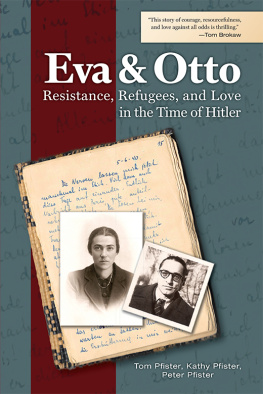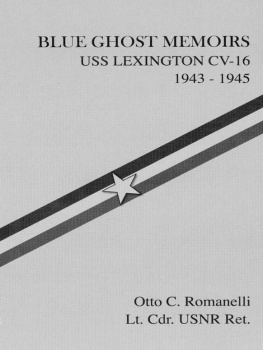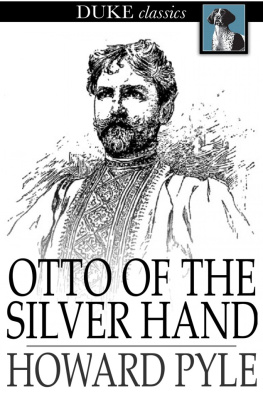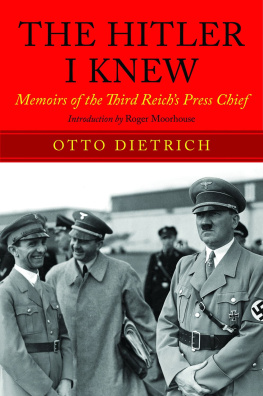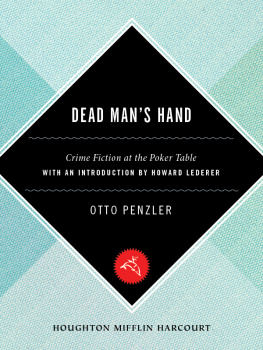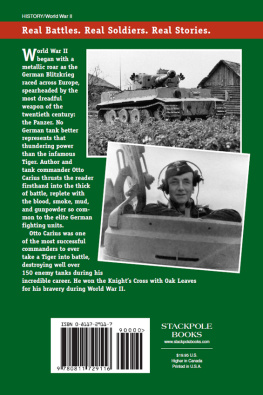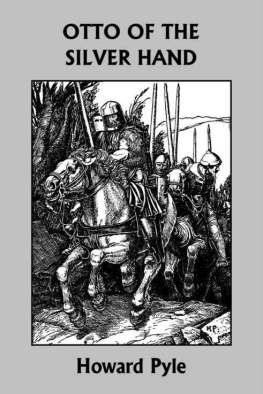In memory of my mother,
my sister Margo,
and my brother Robert.
2016 Eric Koch
All rights reserved. No part of this work covered by the copyrights hereon may be reproduced or used in any form or by any meansgraphic, electronic, or mechanicalwithout the prior written permission of the publisher. Any request for photocopying, recording, taping or placement in information storage and retrieval systems of any sort shall be directed in writing to Access Copyright.
Printed and bound in Canada at Friesens .
Cover and text design: Duncan Campbell, University of Regina Press
Copy editor: Meaghan Craven; Proofreader: Kristine Douaud
Cover photo: Practice by Hannah Sorrells / Snapwire
Portions of the chapters Refugees in the Blackout, Tea with the Master,
and Internment: A Year in One Spot, were previously published in
I Remember the Location Exactly (2006) by Mosaic Press, 1252 Speers Road Units 1 & 2, Oakville, on , L6L 5N9 . http://www.mosaic-press.com/product/i-remember-the-location-exactly/. Reprinted with permission.
Library and Archives Canada Cataloguing in Publication
Koch, Eric, 1919-, author
Otto & Daria : a wartime journey through no mans land / Eric Koch.
The book contains excerpts from letters by Eric Koch and Daria Hambourg.
Issued in print and electronic formats. ISBN 978-0-88977-443-8 (hardback). ISBN 978-0-88977-444-5 (pdf). ISBN 978-0-88977-445-2 (html)
1. Koch, Eric, 1919- Correspondence. 2. Hambourg, DariaCorrespondence. 3. World War, 1939-1945RefugeesCanadaBiography. 4. Authors, Canadian (English)20th centuryBiography. 5. German
CanadiansBiography. I. Title. II. Title: Otto and Daria.
PS8521.O23Z46 2016 C813'.6 C2016-903543-3 C2016-903544-1
Saskatchewan, Canada, S4S 0A2
tel: (306) 585-4758 fax: (306) 585-4699 web: www.uofrpress.ca
0 9 8 7 6 5 4 3 2 1
We acknowledge the support of the Canada Council for the Arts for our publishing program. We acknowledge the financial support of the Government of Canada. / Nous reconnaissons lappui financier du gouvernement du Canada. This publication was made possible through Creative Saskatchewans Creative Industries Production Grant Program.
Contents
Preface
This memoir covers a period of ten years, from 1938 to 1948. During this time, I was a refugee, a Jew forced to emigrate from Frankfurt, Germany, who eventually established roots in Canada, in Montreal and later Toronto.
The book contains excerpts from letters from Daria Hambourg, who, too, spent those years in limbo, but in a different sense. She was a member of a distinguished musical family in London but felt alienated from them. Throughout the war years, she moved from job to job and made a valiant attempt to find meaning in her life. This is reflected in her writing. While our experiences were different, what we had in common was that we were both young people caught up in the physical and psychological stress of the time.
Acknowledgements
Thanks are due to my daughter, Madeline Koch, for her editorial expertise, to my son, Tony Koch, for his computer assistance, to my friend, David Schatzky, who was the catalyst for the book after reading my collection of Darias letters, and to my agent, Beverley Slopen, for her encouragement.
Introduction:
Meeting Daria
When I met Daria she didnt say a word. All she did was blush.
I was sitting in the lounge, waiting for lunch to be served. The date was August 7, 1938, a little more than a year before the outbreak of the Second World War, and the place the two-star Hotel Mirabeau in Champry in the Swiss Alps, up the street from the five-star Grand Hotel. It was near the end of my summer vacation after my first year studying economics at the University of Cambridge. Adolf Hitler was threatening the world. But no one in the Hotel Mirabeau seemed to be aware of it.
Champry, a famous skiing resort, was busier in the winter than it was in the summer. But now, in late August, the chairlifts took hikers to innumerable paths with splendid views of the multi-summited Dents du Midi. I preferred to stay in the hotel.
I had seen Daria at breakfast, the only other person in the dining room who was alone. She had lovely blue eyes, brown hair, a superb complexion, and was wearing a dark grey blouse. I discovered later that she was seventeen. She seemed perfectly happy reading a book.
A little later, lining up outside the dining room before lunch, Daria was standing with two other English girls, one of them called Angela and very forgettable. The other I had met the previous evening in the bar. Her name was Bea. She was flirtatious and attractive. Pursuing her, I thought, might well pay off. Both seemed to be chummy with a family called Wharry.
I rose to talk to Bea who remembered my name, which was promising. Admittedly, Otto is not a common name in England. She introduced me to Daria, who seemed shy but nodded and gave me a polite little smile. I bowed to her. I knew that English girls did not shake hands. I was wondering what she was doing in this hotel, also alone. Waiting for a grown-up to join her? I would probably find out later. For the moment I was more interested in Bea.
Hungry? Bea asked me.
Not very.
I suppose youre never hungry unless you know youre getting sauerkraut.
Daria poked her in the ribs.
I have nothing against sauerkraut, Bea laughed.
She turned to me. Did I say anything offensive, Otto?
Not at all, I replied, although I suspected she had noticed my accent and was going to tease me about being German. I had not told her I was a Jewish refugee.
Are you a Nazi? she asked me.
This time Daria poked her hard with her elbow. How interesting, I thought, a little puzzled. I looked at her face and noticed that she was blushing. Anger? Embarrassment?
No, Bea. I spoke slowly, in an even voice. I am not a Nazi.
Thats too bad, Bea replied. I think the Nazis are much maligned in my country. My uncle attended one of those Nuremberg rallies and thought it was wonderful. He said one has to remember what a mess Germany was before Hitler came in.
This time Daria left without a word and threw herself on a leather armchair in the lounge.
Strange girl, Bea said to me, shrugging. Anyway, your sauerkraut should be ready by now.
Lo and behold, the doors opened. I let Bea and the others go into the dining room. I turned around and sat down on the side of Darias chair.
I think you made your point, I said to her. I am very impressed. May I sit with you at lunch?
That would be nice, she said, careful not to sound too inviting. Those were the first words she spoke to me. For the next two days, once she had overcome her shyness, we spent most of the time together talking, in the lounge, during walks, or in the bar in the evening, drinking freshly pressed lemonadenever in each others rooms. A dam had burst. Although she kept saying that she could express herself better on papershe hoped to become a writershe turned out to be an articulate, voluble, almost irrepressible talker. And she was magnificently English. I quickly forgot Bea.


